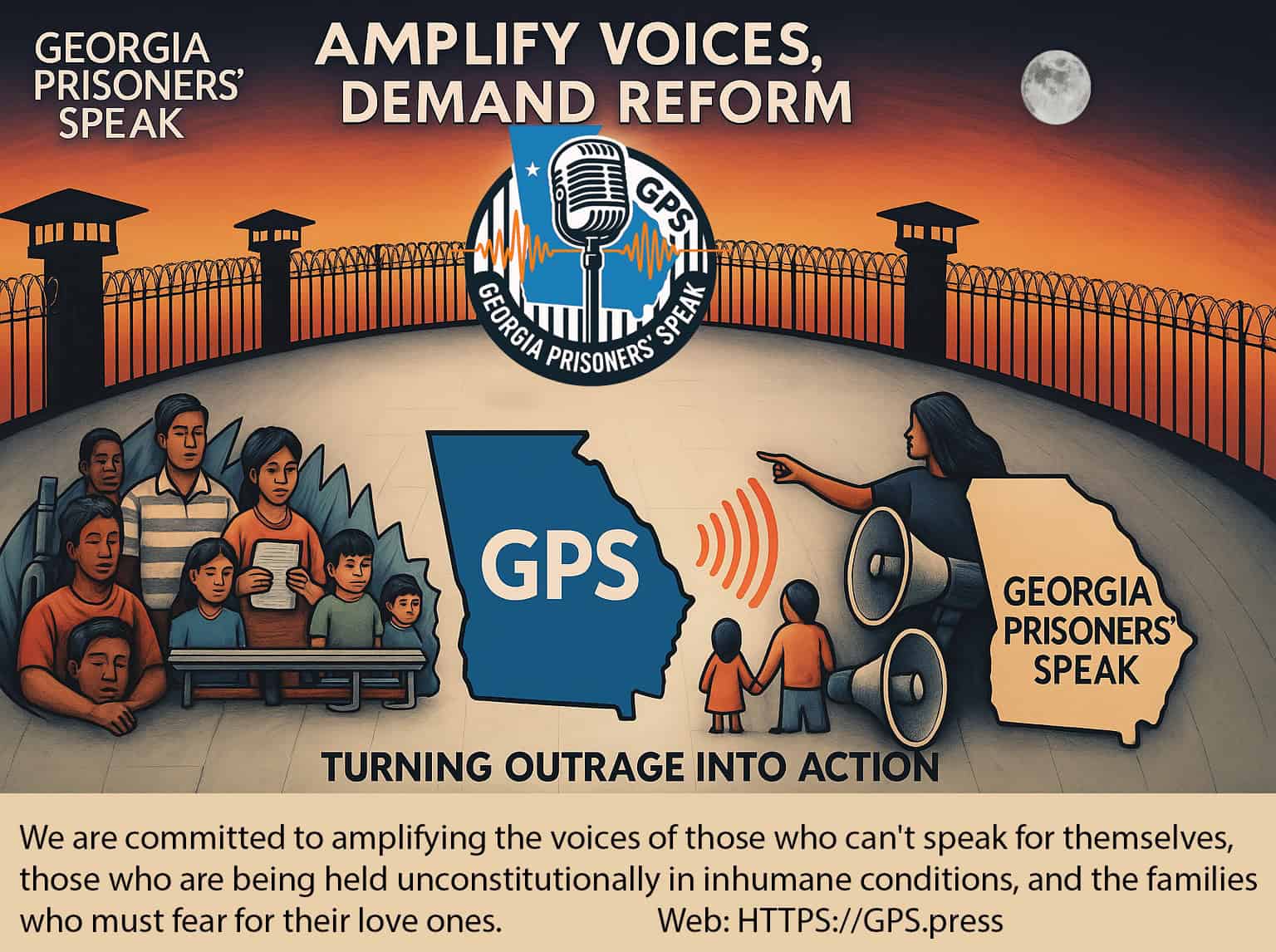Georgia’s public defender crisis sends people to prison who shouldn’t be there. Overloaded attorneys can’t investigate cases. They can’t challenge evidence. They can’t even meet with clients. The constitutional right to counsel means nothing when your lawyer carries 400 cases instead of the recommended 150. The result: wrongful convictions, longer sentences, and an incarcerated population that grows while Georgia’s crime rate falls. 1
The Funding Gap
Georgia ranks among the lowest states for public defense spending per capita. This creates predictable failures:
- Caseloads exceed standards — Defenders handle 2-3 times recommended limits
- Investigation impossible — No time or resources to challenge prosecution evidence
- Prosecutors outmatch defense — Better pay, more staff, more resources
- Rural disparities — Some circuits fare far worse than others
When the state prosecutes you, it has unlimited resources. When you need defense, Georgia provides a lawyer who can’t possibly help you.
What Underfunding Produces
The consequences of inadequate defense extend throughout the system:
Before Trial:
- Defendants wait months to meet their attorney
- Pretrial detention extends because cases don’t move
- People plead guilty to crimes they didn’t commit to get out of jail
During Trial:
- Witnesses aren’t interviewed
- Evidence isn’t challenged
- Expert testimony goes unfought
After Conviction:
- Sentences exceed what adequate counsel would negotiate
- Appeals go unfiled for lack of time
- Wrongful convictions become permanent
Who Pays the Price
Inadequate defense falls hardest on those who can’t afford alternatives:
- Low-income defendants — No option for private counsel
- Minority communities — Disproportionately reliant on public defense
- Non-English speakers — Translation services are inadequate
- Rural residents — Worst-funded circuits serve these areas
Georgia’s 50,250 prisoners include people who shouldn’t be there—convicted not because they were guilty, but because no one could defend them.
The Constitutional Requirement
The Sixth Amendment guarantees the right to counsel. Gideon v. Wainwright established that states must provide attorneys for defendants who can’t afford them. Georgia technically complies—while systematically undermining the guarantee:
- An attorney exists on paper
- That attorney can’t possibly provide adequate representation
- The constitutional right becomes meaningless
Effective assistance of counsel requires more than a name on a form. Georgia provides less than the Constitution requires.
What Reform Requires
Adequate public defense needs:
- Increased funding — Match prosecution resources
- Caseload limits — Enforce standards that allow investigation
- Support staff — Investigators, paralegals, experts
- Equitable distribution — Resources where need is greatest
- Competitive pay — Retain experienced defenders
These changes cost money. They cost less than incarcerating people who shouldn’t be in prison. Georgia spends $86.61 daily to incarcerate someone—and refuses to spend on defense that might keep them out.
Take Action
Use Impact Justice AI to send advocacy emails demanding public defender funding. The free tool crafts personalized messages to Georgia lawmakers—no experience required.
Demand:
- Adequate funding for public defender offices
- Caseload limits that allow effective representation
- Parity with prosecution resources
- Support for wrongful conviction review
Further Reading
- Parole Theater: How Georgia’s Parole Board Rubber-Stamps Inevitable Releases
- $700 Million More—And Nothing to Show for It
- GPS Informational Resources
- Pathways to Success
About Georgia Prisoners’ Speak (GPS)
Georgia Prisoners’ Speak (GPS) is a nonprofit investigative newsroom built in partnership with incarcerated reporters, families, advocates, and data analysts. Operating independently from the Georgia Department of Corrections, GPS documents the truth the state refuses to acknowledge: extreme violence, fatal medical neglect, gang-controlled dorms, collapsed staffing, fraudulent reporting practices, and unconstitutional conditions across Georgia’s prisons.
Through confidential reporting channels, secure communication, evidence verification, public-records requests, legislative research, and professional investigative standards, GPS provides the transparency the system lacks. Our mission is to expose abuses, protect incarcerated people, support families, and push Georgia toward meaningful reform based on human rights, evidence, and public accountability.
Every article is part of a larger fight — to end the silence, reveal the truth, and demand justice.

- GPS Statistics, https://gps.press/gdc-statistics/[↩]
